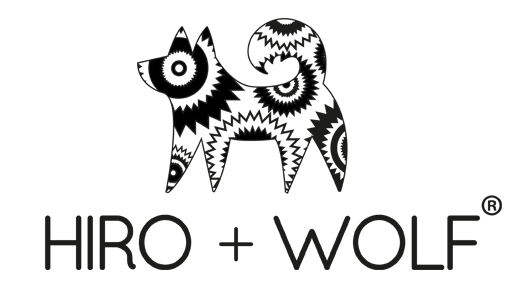Did you know that every year there is a fabulous initiative and challenge called Plastic Free July? Plastic Free July is "a global movement that helps millions of people be part of the solution to plastic pollution – so we can have cleaner streets, oceans, and beautiful communities." So read on if you want to learn even more about this fantastic initiative and how you and your four-legged friend can get involved this month and beyond.
-
Plastic Free July is a key initiative of the Plastic Free Foundation that allows like-minded people to work towards a shared vision of a world free of plastic waste. From humble beginnings in 2011, the award-winning Plastic Free July campaign is the result of years of hard work from charities, businesses, schools and individuals alike. The initiative was started by Rebecca Prince-Ruiz (the founder of the Plastic Free Foundation) and a small team in local government in Western Australia, and is now one of the most influential environmental campaigns in the world. Millions of people across the globe take part every year, with many participants committing to reducing plastic pollution far beyond the month of July. In July 2019 alone, an estimated 250 million people across the globe took part in the challenge from 177 countries. Plastic Free July participants managed to contribute to a total saving of 825 million kg of plastic waste each year and 9 out of 10 people that took part made changes that have become daily habits or a way of life.
So how can you cut down on single use plastics when it comes to pet care? Owning a pet is generally not an overly sustainable thing to do, however we can make smart choices to help reduce our pets paw print, and the easiest place to start with this is eliminating as many single use plastics as possible. Of course, the health and well being of your pet comes first, and some of these switches simply won't work for everyone! However, here's some of our top suggestions to get you on your way to a plastic free life for you and your furry friend.

Food
- Buying tins instead of pouches of food is a good way to reduce your plastic waste. Tins are a great plastic-free alternative - some brands even do half sized tins if you need smaller portions, or you could buy a reusable silicone tin cover to keep food fresh in the fridge. Most tins are made from aluminium, and metal is the world's most recycled material, with 75% of all aluminium used since 1888 still in use today!
- Avoid plastic bags of dry food. Edgard & Cooper make great, natural pet food that comes in biodegradable bags made from plants! They are the first pet food brand with a full range of biodegradable bags. Just remember - biodegradable packaging goes into general waste, not recycling. You can find their treats online here, and we also carry their dog food in store. There are also a lot of cat food brands that come in cardboard boxes instead of plastic bags.
- Buy loose if possible. Some pet shops (especially the old-fashioned, independent ones) will have loose food that you can buy in your own bags - everything from dog biscuits to bird food, to rabbit pellets. Check your local zero waste shop for pet food options as well.

Poop
- If you've got rabbits/hamsters/guinea pigs or other small animals, the straw or sawdust and poo can go in your compost heap safely, avoiding the need to bag it up in plastic.
- Wood based cat litters or recycled newspaper provide a good alternative to cat litters that often contain micro-plastics. It's also best to look out for cat litters that come in paper packaging. Also, encouraging your cat to go to the toilet outside is a good idea if it is safe to do so.
- We highly recommend switching to biodegradable dog poo bags. Adios Plastic makes amazing, 100% biodegradable and compostable poo bags from plants. Adios Plastic also works with 1% for the planet, donating a percentage of sales to help protect sea life and bring an end to the high levels of plastic in our Oceans. They even come in trendy colours, choose between pink or grey here.

Pet Accessories
- Bowls, beds, toys etc can often be bought second-hand from charity shops or online market places which significantly reduces plastic waste.
- If you are buying new, make sure to buy to last. Plastic bowls will often get chewed up by mischievous pups and of course aren't very good for the environment. Instead, opt for metal, bamboo or ceramic food bowls that will last the test of time and are often more hygienic.
- Buy ethically made collars and leads, and look for designs without plastic buckles. All of our pet accessories are made without any plastic and from durable, ethically soured materials that will stand the test of time.
- Look for eco-friendly toys that are made from natural materials such as hemp, cotton, rope, rubber, jute and even olive wood. Recycled materials are always best where possible. Try to avoid toys made from synthetic, non-recyclable materials that contain plastic (especially in squeakers) and synthetic fabrics. You can also create toys quite easily at home. For cats, a scrunched up ball of foil or a cardboard box is often enough to keep them entertained. For dogs, you can easily make great pull toys by tying old scraps of fabric together.
We know when it comes to our pets, we all want to do what's best for them, but hopefully we've given you some good ideas on how you can also do what is best for the environment! Does your pet live a plastic free life? For more ideas on how to reduce plastic waste in your life and to sign up for the Plastic Free July challenge, be sure to visit their website.







